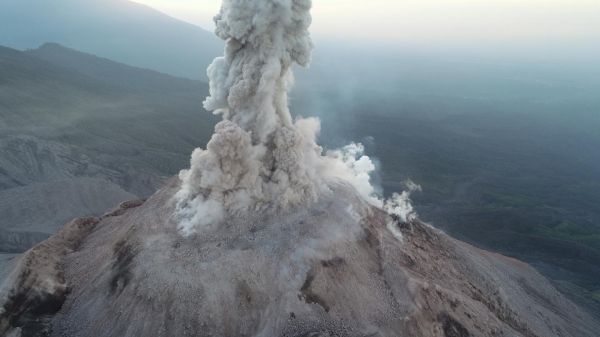Due to the difficult accessibility and the high risk of collapse or explosion, the imaging of active volcanoes has so far been a great challenge in volcanology. Researchers around Edgar Zorn from the German Research Centre for Geosciences GFZ in Potsdam are now presenting the results of a series of repeated survey flights with optical and thermal imaging cameras at the Santa Maria volcano in Guatemala. Drones were used to observe the lava dome, a viscous plug of lava. The researchers were able to show that the lava dome shows movements on two different time scales: slow expansion and growth of the dome and fast extrusion of viscous lava. The study was published in the journal "Scientific Reports".
"We have equipped a drone with different cameras", says Edgar Zorn from GFZ, the first author of the study. "We then flew the drone over the crater at various intervals, measuring the movements of lava flow and a lava dome using a specific type of stereo photography with a precision never seen before." By comparing the data from the drone, we were able to determine the flow velocity, movement patterns and surface temperature of the volcano. These parameters are important for predicting the danger of explosive volcanoes. The researchers also succeeded in deriving the flow properties of the lava from these data.
"We have shown that the use of drones can help to completely re-measure even the most dangerous and active volcanoes on Earth from a safe distance," continues Edgar Zorn. "A regular and systematic survey of dangerous volcanoes with drones seems to be almost within one’s grasp", says Thomas Walter, volcanologist at GFZ, who was also involved in the study.
Read more at GFZ Geoforschungszentrum Potsdam, Helmholtz Centre
Image: Picture of the Santa Maria volcano in Guatemala. (Credit: Zorn et al. 2020, Nature - Scientific Reports: DOI 10.1038/s41586-020-2212-1)


